Oral and Poster Presentation Submission
SCA2024 talks and poster presentations present high-quality original research, technical breakthrough, compelling discovery, and leading edge science discovery and advancements in high performance computing, networking, storage, AI, quantum simulation and domain science applications areas.
Proposed contributions must submit a 250-word (max) abstract. These will be reviewed by the technical committee on their relevance, impact, significance, and novelty.
Research Posters that are accepted will be displayed Tuesday 20 Feb – Thursday 22 Feb, 9am–5pm at the Exhibition Hall of the ICC Sydney during the SupercomputingAsia conference.
Accepted abstracts are then invited to submit a full-length paper. This is optional for the presenting author(s). The submitted paper will enter into the Best Paper Award competition.
Submitted full-length papers also have a chance to be accepted as a submission into a special edition of the Advanced Theory and Simulations journal (reserved for SupercomputingAsia 2024). Advanced Theory and Simulations is part of the prestigious Wiley Advanced portfolio. The journal publishes high-quality scientific results focusing on the development and application of theoretical methods, modelling and simulation approaches in all natural science and medicine areas.
We recommend that you use the template of the Advanced Theory and Simulations journal for easy edits later. Both Word and Latex templates are available on the author guideline page: https://onlinelibrary.wiley.com/page/journal/25130390/homepage/author-guidelines
Please note that the acceptance of you abstract (for the oral or poster presentation at SupercomputingAsia 2024) does not mean that your full-length paper is automatically accepted for publication in Advanced Theory and Simulations. An independent peer-review process will be separately conducted to determine this. However, the review and publication process will be fast tracked.
We are committed to supporting our speakers and attendees in every possible way. If you have any questions or need assistance, please do not hesitate to contact us at SCAsia2024@gmail.com
Domain science applications
Pushing the boundaries of CFD with HPC
In this technical session, we aim to bring together people that work on advanced numerical algorithms for solving large-scale CFD problems on today’s HPC architectures with users and developers of codes conducting cutting-edge research on supercomputers in a variety of application areas.
Computational Catalysis
Catalysis plays a pivotal role in the development of sustainable and efficient chemical processes. This proposed conference section aims to explore the frontiers of computational catalyst research, emphasizing integration of state-of-the-art simulation methods and experimental observations.
Earth Virtualisation Engines for the Asia-Pacific
Earth Virtualisation Engines (EVE) is a proposed international federation of centres of excellence to respond to climate change challenges. This session invites contributions that relate to any of EVE’s three main threads as well as their integration into an information system. These are: hardware and software systems for ultra-high resolution Earth System Modelling, the application of AI and machine learning in the generation and provision of climate information, and the development and implementation of ultra-high resolution global climate modelling systems.
Applications of AI/ML Models within the Biosciences
Explore the cutting-edge intersection of artificial intelligence and machine learning within the realm of biosciences. Applications of AI/ML models to: genomics, drug discovery, healthcare diagnostics, and ecological research.
Unveiling the Cosmos: HPC and AI Innovations in Astrophysics
Dive into the captivating convergence of High-Performance Computing (HPC) and Artificial Intelligence (AI) in the field of astrophysics. Learn how HPC accelerates the modeling of astrophysical systems and simulations of celestial events, while AI augments data-driven discovery in the era of big astronomy.
Revolutionizing Earth Observation at scale
This session invites experts, scientists, and innovators in Earth observation to explore how the fusion of HPC and AI is reshaping our understanding of our planet. This session offers opportunities to discuss pioneering research, methodologies, and applications that harness HPC and AI to tackle environmental challenges, advance climate science, and inform policy decisions.
How HPC, AI and Quantum Computing Shaping Tomorrow’s Economic through Modelling Renaissance
Join this collaborative platform to understand how HPC and AI are revolutionizing economic research and enabling data-driven decisions in a dynamically evolving economic landscape. In the age of big data, this session unearths how HPC empowers high-fidelity simulations and how AI enhances predictive analytics, transforming economic forecasting, risk analysis, and policy simulation
Natural hazards case studies using HPC and AI
Together, HPC and AI empower us to better prepare for, respond to, and recover from natural hazards, ultimately saving lives and reducing the economic and environmental impact of disasters. Showcase and studies are invited to demonstrate how research in natural hazards is being advanced and accelerated by model HPC/AI infrastructure, algorithms and application.
HPC and Data in Materials Design and Discovery
This session invites materials scientists, computational experts, and innovators to explore how the marriage of HPC and data-driven approaches is revolutionizing the field. You are invited to discuss how the potential of HPC and data analytics is used to accelerate innovation in areas like energy storage, semiconductor design, and materials for sustainability.
Infrastructure, system, network
Network and Data movement
This stream covers the use of networks, the services they enable and the challenges they present. Topics will be: AARNet domestic and international, global networks (Sentinel, CopHub, DEA), large instruments (sequencers, SKA) and investigating the next generation of data movement.
Green Data Centres
The Green Data Center Session focuses on optimising sustainability and efficiency in data centre operations as well as addressing the environmental concerns tied to their growth. Contributions are welcome from areas such as green data centre IT, energy-efficient system design, real-time energy prediction and regulation, scalable architectures, and software optimisation.
Pioneer the Next Frontier: Infrastructure Evolution for Exascale AI
The era of exascale AI is upon us, this session is a deep dive into the dynamic evolution of infrastructure required to support exascale AI. Strategies for energy efficiency, scalability, and the convergence of HPC and AI systems. Plus, we tackle the critical aspects of data management, security, and software frameworks needed to leverage exascale computing for AI breakthroughs.
Infrastructure Challenges in the Exascale Era
Topics and challenges include: cooling, software development, powering exascale level facilities, environmental concerns and storage and networking systems.
AI-Driven Optimization in HPC
This session brings together AI specialists, HPC practitioners, and researchers to explore AI-driven optimization strategies. From auto-tuning compilers to intelligent resource allocation, we’ll delve into how AI is enhancing the performance and efficiency of HPC systems.
Innovations in HPC Storage and File Systems
From parallel file systems to non-volatile memory solutions, explore the strategies and technologies that enhance data management, accessibility, and reliability in HPC.
Network Security in HPC: Challenges and Solutions
Discuss threat mitigation, intrusion detection, data encryption, and best practices to safeguard HPC networks and data.
Genome data infrastructure
As the cost of genome sequencing has outstripped computing and data storage costs, bigger genome cohorts are being sequenced. Few sustainable models exist for maintaining these cohorts. What role could HPC centres play in alleviating this problem? Examples may include providing pre-computed analysis-ready results that are fully compliant with best-practice approaches, but other opportunities must surely exist.
Containerisation and Virtualisation in HPC Infrastructure
This session welcomes system administrators, DevOps professionals, and containerisation experts to explore how containerisation and virtualisation streamline deployment, resource allocation, and application management in HPC clusters.
Algorithms and computational model
Advances in Parallel Algorithms for HPC
From load balancing and task scheduling to parallel I/O and memory optimization. Join us to discuss cutting-edge approaches that maximize the potential of modern supercomputers and clusters.
Programming Models for Heterogeneous HPC
Heterogeneous computing environments, with diverse accelerators like GPUs and FPGAs, require specialized programming models. This session welcomes experts to discuss programming models that enable efficient utilization of heterogeneous resources in HPC systems.
Optimising Deep Learning Algorithms for HPC
This session explores techniques for optimizing deep learning algorithms in HPC environments. Data scientists, machine learning experts, and HPC developers will discuss scalable deep learning frameworks, model parallelism, and efficient training strategies.
Distributed and Parallel Computing with HPC Clusters
In this session, parallel computing specialists, cluster administrators, and researchers discuss the latest advancements in parallel programming models, distributed data processing, and best practices for utilizing HPC clusters effectively.
Quantum
Accelerate Quantum Computing Research with NVIDIA cuQuantum and CUDA Quantum
The research community are using simulators to help design and verify algorithms to run on quantum computers. These simulators capture the properties of superposition and entanglement and are built on quantum circuit simulation frameworks. To help bridge the gap between classical and quantum computers, NVIDIA has introduced cuQuantum SDK and CUDA Quantum hybrid quantum-classical computing platform. The cuQuantum is an SDK of optimized libraries and tools for accelerating quantum computing workflows.
Quantum simulation
Share your innovative approaches to simulate quantum systems, explore quantum algorithms, and harness the power of quantum computers for practical problem-solving.
Quantum-Inspired Computing Models for HPC
In this session, experts in quantum-inspired algorithms, annealing, and quantum computing will delve into the potential and challenges of quantum-inspired computing models for HPC. Discuss the latest developments in quantum-inspired algorithms, hybrid computing, and quantum annealers, and explore their applicability in solving complex computational problems.
Quantum Algorithms and Hybrid Computing for HPC
This session gathers quantum experts, algorithm designers, and HPC researchers to explore quantum algorithms, their integration with classical HPC systems, and their potential for solving complex computational problems.
AI in general (not domain applications)
Optimisation and benchmark of Machine learning
This session unravels the intricacies of optimizing machine learning algorithms, focusing on fine-tuning parameters, enhancing model efficiency, and maximizing predictive accuracy. From measuring computational speed to evaluating model robustness, this session sheds light on the methodologies and tools used to gauge the true potential of machine learning solutions.
Graph Learning and Complex Networks
This abstract call beckons explorations into the multifaceted world of network structures, with a focus on the application of machine learning and data analysis techniques. Share your novel approaches in unraveling hidden patterns, predicting network behaviors, and optimizing real-world complex systems.
Exploring the landscape of AI Ethics
We invite you to delve into the complexities of bias, transparency, accountability, and fairness in AI systems. Examine the ethical challenges and opportunities in AI research, development, and deployment.
Unleashing Creativity: Exploring the World of Generative AI
This session delves into the captivating world of Generative AI, where machines are trained to create, design, and imagine. We embark on a journey through the fascinating landscape of AI systems that generate text, images, music, and more. Look at how it is reshaping industries, and challenging our understanding of creativity.
Data Readiness for AI: Navigating the Multiverse of Text, Images, Videos, Time Series and beyond
We are witnessing a data revolution, where the availability of massive datasets presents unprecedented opportunities for AI applications. This session encourages discussions on data collection, cleaning, labeling, and augmentation strategies specific to various data modalities. It will investigate text mining, image recognition, video analysis, and forecasting with time series data.
Knowledge Graphs and Large Language Models
Knowledge graphs, which serve as structured representations of domain-specific information. Large Language Models (LLMs) possess the ability to process, understand, and generate human-like text based on vast amounts of data. This session is dedicated to a scholarly exploration of how LLMs are being employed in the construction, mining, and detailed analysis of knowledge graphs.
The New Data Center Architecture For The Generative AI Era
ChatGPT has quickly made a transformative impact on the data centre. AI Factories and Generative AI Clouds lead the way as the cutting-edge data centre platforms. Large Language Models (LLMs) have revolutionised the computing architecture to support a single application that runs atop a massive AI data centre. Imagine tens-of-thousands of GPUs working seamlessly to train LLMs; it’s the new norm. However, achieving high performance, efficiency, low power consumption, and software-defined data centres remains a challenge for data centre operators worldwide. The backbone of this innovation lies in accelerated computing, featuring a harmonious blend of GPU computing, DPU computing, storage computing, and In-Network Computing – the essential components for optimal data centre performance.
Industry Track
Community
APAC HPC-AI competition showcase and award ceremony
The event kicks off with a captivating showcase of the most remarkable projects and solutions that emerged from the APAC HPC-AI Competition. We will honour the champions, runners-up, and teams that have demonstrated exceptional skills and creativity in the domains of HPC and AI.
ADAC14 Open Symposium – Benchmarking in an evolving HPC landscape
In recent years, high-performance computing (HPC) has undergone significant changes, entering the “”post-Moore era”” and accommodating rapid growth in data-intensive workloads. This symposium aims to provide insight into ongoing benchmarking efforts, showcase innovative approaches, and foster collaboration in benchmark development.
IoSC: International Workshop on Internet of SuperComputing 2024
High performance computing has begun scaling beyond Exaflop performance. One of the major concerns throughout the development instead of performance capability is availability. IoSC 2024 is the first international workshop that engages the necessary collaborations among HPC directors, supercomputing scientists, domain scientists, and potential IoSC users. The scope is to share experiences and case studies of connecting supercomputer resources via state-of-art network technology and lessons learned across system middleware, domain-application store and new service models.
Skills and Training
Harnessing HPC skills
This session within the Skills Track, provides a platform for presenting and discussing critical topics in HPC education, training, and workforce development. Paper authors may wish to address topics such as the extensibility and scaling of training, exemplar HPC training programs, and learner engagement techniques in training to ensure transference, retention and practical application of foundational concepts to advanced HPC techniques. Don’t be limited by the topic examples given.
Unlocking new possibilities through skills – integrating AI/ML & HPC
This Skills Track session aims to explore the intersection of HPC and AI/ML skills. Papers for this session should explore topics that focus on HPC/AI/ML integration. What are the skills needed to incorporate AI/ML into HPC workflows? What are the challenges and opportunities for attaining the knowledge, skills and competencies required for HPC and AI/ML? What real-world examples are there of skills programs enabling HPC/AI/ML practitioners, researchers and professionals to effectively leverage these research shaping technologies in an integrated way? Don’t be limited by the topic examples.
A resilient research workforce – scalable and sustainable skills development programs
The session is aimed at trainers, educators, training program managers, training funders, and workforce development decision makers. Paper authors may wish to address some of the following questions: How can the research sector develop and deliver training in a scalable way to meet workforce skills demands? What examples of sustainable funding models for workforce development exist? Are there innovative initiatives and programs that can be adapted from other sectors? What programs can be run in collaboration with government and industry? How can we measure the impact of workforce development programs? Don’t be limited by the topic examples.
Supporting Computational Trainer Communities
As part of the Skills Track, the papers for this session should explore the opportunities and challenges faced by digital research trainers as they engage with researchers and their communities. Paper authors may wish to address some of the following questions: What are best practices in pedagogy, andragogy, and heutagogy? What skills, knowledge and tools are required to establish, manage, and grow vibrant skills-based communities? Don’t be limited by the questions provided.
Equity, Diversity and Inclusive
HPC, AI, Quantum STEM in general community building and support networks
Discuss mentorship, networking, and advocacy initiatives. Explore strategies and best practices for promoting diversity and inclusivity and how to make STEM fields more accessible to individuals from underrepresented backgrounds and foster diverse talent pipelines.
Gender Equity in HPC, AI and Quantum Computing
Address the underrepresentation of women in HPC and quantum fields and explore initiatives and programs aimed at bridging the gender gap. Discuss the experiences and achievements of women in these domains
Diversity in Research Teams
Highlight the benefits of diverse research teams in HPC, AI, and quantum projects. Discuss experiences and strategies for building inclusive research teams and the impact of diverse perspectives on scientific outcomes.



